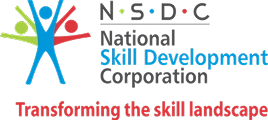Course Design By
Nasscom & Wipro
Structured Learning: Acquire fundamental knowledge step-by-step through the Software Testing Certification program.
Educational Qualification: Pursue either a bachelor's degree or a diploma in a related field to strengthen your foundation.
Skill Showcase: Demonstrate your expertise with the essential skills and a certification to validate your capabilities.
Hands-On Practice: Engage in practical exercises covering software testing fundamentals, programming basics, and manual testing.
Career Launch: Initiate your career in Quality Assurance by enrolling in a Software Testing Course. Our expert team will guide you through learning software testing concepts and basic terminologies.
Software testing enhances application quality across all phases of software development.
The Software Testing Course is popular due to numerous job opportunities worldwide.
Offers diverse career options spanning various industries.
Over 4.5K students have successfully completed the course.
Provides the necessary skills and the right approach to kickstart your career.
Comprehensive training covers all aspects required by the top IT industry.
Quality Assurance (QA) Tester: Conduct thorough testing of software applications to identify and report defects, ensuring the delivery of high-quality products.
Test Analyst: Analyze testing requirements, design test cases, and execute testing strategies to validate software functionality and performance.
Automation Test Engineer: Develop and implement automated test scripts, utilizing testing tools to improve efficiency in the testing process.
Software Testing Engineer: Execute manual testing procedures, ensuring the identification and resolution of software bugs and glitches.
Test Lead/Manager: Oversee testing teams, manage testing projects, and ensure adherence to testing standards and processes.
Performance Tester: Evaluate software performance, identifying bottlenecks and areas for improvement to enhance overall system efficiency.
Security Tester: Assess software security measures, conduct penetration testing, and implement security protocols to safeguard against vulnerabilities.
User Acceptance Tester: Validate software from an end-user perspective, ensuring that the application meets user requirements and expectations.
Testing Consultant: Provide expertise in testing methodologies, tools, and best practices, offering guidance to organizations for optimizing their testing processes.
Test Architect: Design and implement testing frameworks, establishing the structure and foundation for effective software testing strategies.
we train you to get hired.

By registering here, I agree to Croma Campus Terms & Conditions and Privacy Policy
+ More Lessons
Course Design By

Nasscom & Wipro
Course Offered By

Croma Campus

Stories
success
inspiration


career upgrad


career upgrad


career upgrad


career upgrad
19-Jul-2025*
14-Jul-2025*
16-Jul-2025*
19-Jul-2025*
14-Jul-2025*
16-Jul-2025*

You will get certificate after
completion of program

You will get certificate after
completion of program

You will get certificate after
completion of program
in Collaboration with






Empowering Learning Through Real Experiences and Innovation

we train you to get hired.

Phone (For Voice Call):
+91-971 152 6942WhatsApp (For Call & Chat):
+91-971 152 6942Get a peek through the entire curriculum designed that ensures Placement Guidance
Course Design By


Course Offered By

Ready to streamline Your Process? Submit Your batch request today!
Learning software testing concepts can be challenging, but dedication and practice make it manageable.
After software testing training, you'll gain expertise in test planning, execution, bug tracking, and ensuring software quality.
Future of software testing: AI-driven automation, continuous testing, and security testing are key trends, ensuring robust, efficient, and secure software.
Yes, I offer cutting-edge software testing training in the latest concepts and technologies for comprehensive skill development.

FOR QUERIES, FEEDBACK OR ASSISTANCE
Best of support with us
For Voice Call
+91-971 152 6942For Whatsapp Call & Chat
+91-9711526942